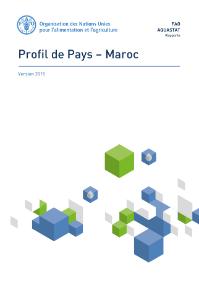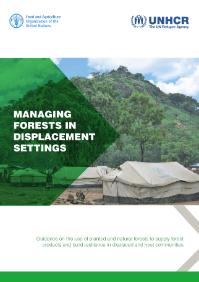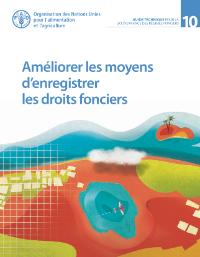Focal point
Location
The Food and Agriculture Organization of the United Nations leads international efforts to defeat hunger. Serving both developed and developing countries, FAO acts as a neutral forum where all nations meet as equals to negotiate agreements and debate policy. FAO is also a source of knowledge and information. We help developing countries and countries in transition modernize and improve agriculture, forestry and fisheries practices and ensure good nutrition for all. Since our founding in 1945, we have focused special attention on developing rural areas, home to 70 percent of the world's poor and hungry people.
Members:
Resources
Displaying 411 - 415 of 5073Profil de Pays – Maroc
Ce profil de pays décrit l’état des ressources en eau et l’utilisation de l’eau, ainsi que l’état de la gestion de l’eau agricole dans le Maroc. L’objectif de cette monographie est de décrire les particularités du pays et les problèmes rencontrés dans le développement des ressources en eau et de l’irrigation en particulier.
Managing forests in displacement settings
The massive increase in demand for woodfuel for cooking caused by sudden influxes of refugees and other displaced people is usually the main driver of forest degradation and deforestation in displacement settings. It places enormous pressure on nearby forests and woodlands and is often a source of tension between the host and displaced communities. A lack of sufficient cooking fuel also has an impact on the nutrition and health of vulnerable people in such settings.
Améliorer les moyens d'enregistrer les droits fonciers
Ce guide fournit des conseils pratiques pour améliorer les méthodes actuelles d’enregistrement des droits de manière à ce que les protections et les avantages offerts par les systèmes d’enregistrement puissent être accessibles à tous sans discrimination. Ce guide fait partie d’une série de guides techniques apportant des conseils sur les différentes façons d’améliorer la gouvernance foncière, conformément aux Directives.
Managing forests in displacement settings
The massive increase in demand for woodfuel for cooking caused by sudden influxes of refugees and other displaced people is usually the main driver of forest degradation and deforestation in displacement settings. It places enormous pressure on nearby forests and woodlands and is often a source of tension between the host and displaced communities. A lack of sufficient cooking fuel also has an impact on the nutrition and health of vulnerable people in such settings.
Base de référence mondiale pour les ressources en sols 2014, Mise à jour 2015. Système international de classification des sols pour nommer les sols et élaborer des légendes de cartes pédologiques
La première édition de la Base de référence mondiale pour les ressources en sols (WRB) a été publiée lors du 16ème Congrès Mondial de la Science du Sol à Montpellier en 1998. Lors du même événement, elle fut adoptée comme système de corrélation des sols et de communication internationale de l'Union Internationale des Sciences du Sol (IUSS). La seconde édition de la WRB a été publiée au 18ème Congrès Mondial à Philadelphie en 2006.










